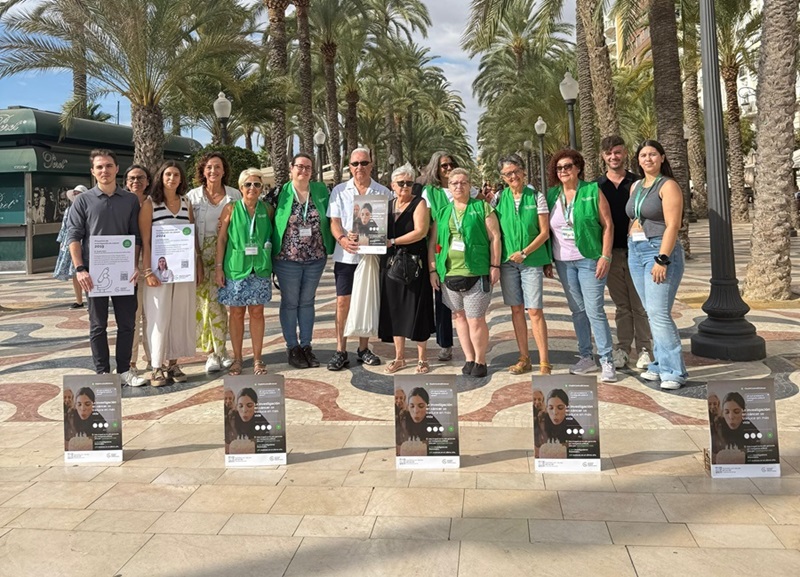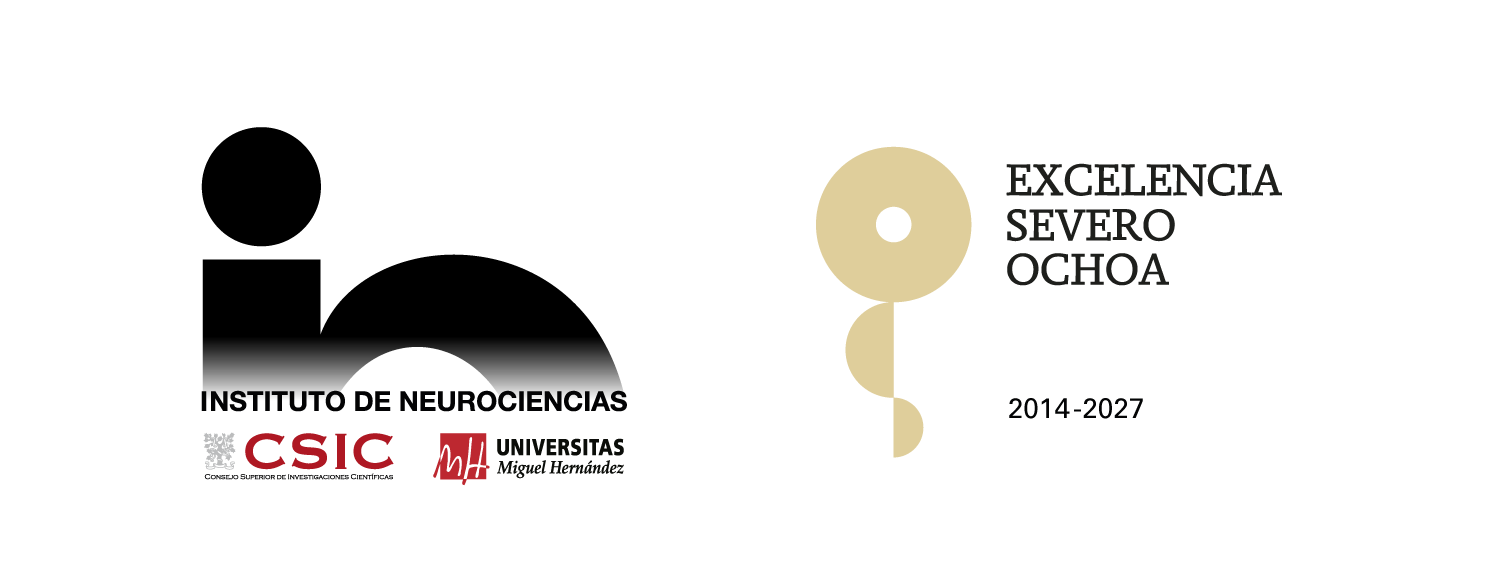The Spanish Association Against Cancer brings science closer to citizens from Alicante
29 de September de 2025

Photo: Volunteers and researchers from the Spanish Association Against Cancer on the Explanada in Alicante during World Cancer Research Day. Source: AECC Alicante.
On the occasion of World Cancer Research Day, the Spanish Association Against Cancer (AECC) in Alicante took to the streets of the city on September 24 to bring citizens closer to the scientific advances being developed in the province. Volunteers and researchers handed out test tubes containing information on projects funded in Alicante, led by prestigious teams and supported by the Association. Researchers Mario Aguilar and Raúl Jiménez from the Institute for Neurosciences (IN), a joint center of the Spanish National Research Council (CSIC) and Miguel Hernández University (UMH) in Elche, participated in the event. Jiménez also attended on behalf of the research team led by Ángela Nieto.
In 2024, the province of Alicante recorded 12.081 new cancer diagnoses, according to estimates from the Cancer Observatory. To address this reality, the Spanish Association Against Cancer is currently supporting seven research projects in the province, with an investment exceeding €950,000.
Among them is the work of Khalil Kass Youssef, who, with a Researcher Grant of €200.000, is studying the role of neurons in breast cancer progression and identifying vulnerabilities in highly resistant tumors such as bile duct and triple-negative breast cancers. “My professional goal has always been to improve patient care and public health through scientific advances and new cancer therapies. Thanks to a multidisciplinary and collaborative strategy, we have integrated advances in cancer biology and neuroscience, laying the foundations for new therapeutic approaches that take the tumor’s nervous environment into account”, Youssef highlighted.
Another ongoing project is led by Mario Aguilar, who, with an Ideas Semilla Grant of €19.950, is studying the brain mechanisms behind the placebo effect, to optimize cancer treatments. “Cancer research translates into more life. Thanks to the efforts of the scientific community and the support of associations like the AECC, today we are able to increase survival, improve patients’ quality of life, and bring advances closer to society. Research must be a collective priority, and basic research is the solution for the future: only by understanding the causes of the disease will we be able to cure it, and not just treat its symptoms. Investing in research means investing in the future of everyone”, Aguilar stressed.
Cancer research means more life
The Spanish Association Against Cancer is the largest cancer research network in Spain, supporting more than 2.300 researchers across 146 research centers located in 38 provinces, working on all phases of this disease development, from prevention to metastasis.
Within this framework, the Association presented the ‘Patient Advocacy’ program, a pioneering initiative in Spain that has, for the past five years, incorporated the voice of patients into the processes of selecting and monitoring cancer research projects. The goal is to provide a more realistic and closer view of patients’ clinical needs, strengthen their role as key players in decision-making, and promote the creation of tailored medical solutions. This approach, aligned with the international trend toward more inclusive and collaborative medical research, has a direct impact on public health by influencing the design of treatments, health policies, and prevention strategies.
About the Spanish Association Against Cancer
With more than 70 years of history, the Spanish Association Against Cancer is the reference organization in the fight against this disease in Spain. Its work covers prevention, comprehensive support for patients and families, and the promotion of cancer research. Through its Scientific Foundation, it funds high-quality projects through public calls and is today the social and private entity that allocates the most funds to cancer research in Spain, with €143 million invested in 750 projects.
The Association has 52 provincial offices and a presence in more than 2,000 municipalities, supported by a network of 3.000 volunteers, 728.000 members, and 1,261 professionals. In 2024 alone, the Association provided professional support services to more than 136.000 people.
More information: https://www.contraelcancer.es/es
Source: Instituto de Neurociencias CSIC-UMH (in.comunicacion@umh.es) / Alicante Provincial Office of the Spanish Association Against Cancer

 Español
Español